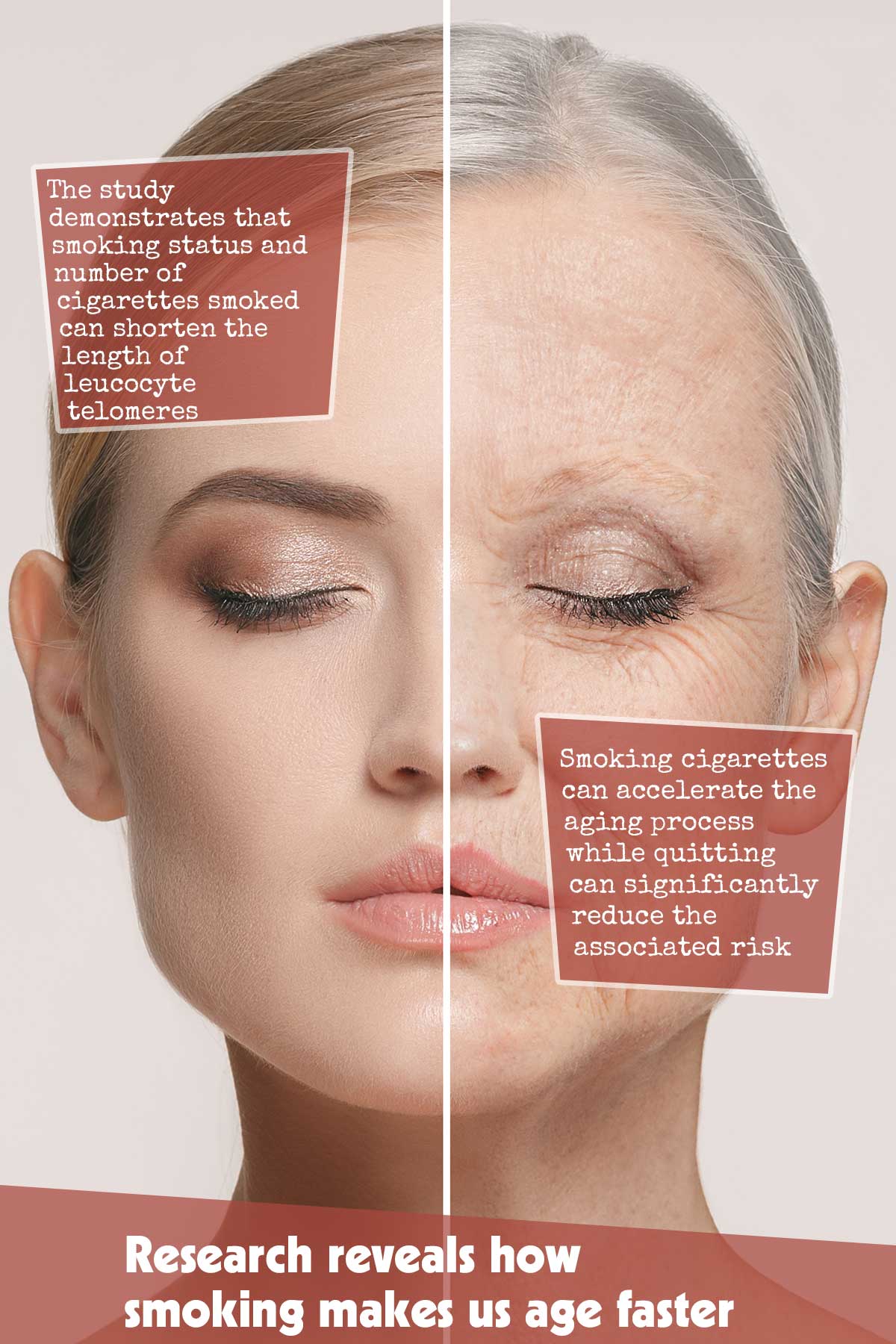A study of almost 500,000 individuals has revealed that the chromosome end fragments in the immune system’s white blood cells are shortened from cigarette smoking. These end fragments are known as telomeres, and telomere length is an indicator of how fast we age and the ability of the cells to regenerate and repair.
The study demonstrates that smoking status and number of cigarettes smoked can shorten the length of leucocyte telomeres, an indicator of aging, tissue regeneration, and self-repair. This means that smoking cigarettes can accelerate the aging process while quitting can significantly reduce the associated risk.
Telomeres are like the metal or plastic sheaths that stop the fraying of shoelaces. They are repetitive DNA sequence lengths protecting the chromosome ends. The telomeres become a little bit shorter every time a cell divides and gradually become so short that the cell is no longer able to divide and dies.
This process is part of aging. The length of telomeres in white blood cells known as leucocytes has been associated with smoking, but there haven’t been many studies into whether the amount smoked and smoking status in fact caused the telomere length to shorten.
Data were analyzed from the UK Biobank that contains health and genetic information from 500,000 individuals. They examined whether an individual was currently smoking, a former smoker, or never smoker, smoking addiction level, the number of cigarettes smoked (pack-years of smoking), in addition to leucocyte telomere length information obtained from blood tests.
They made use of a method known as Mendelian randomization that uses gene variations called single nucleotide polymorphisms that we inherit to deduce how exposure to a changeable environmental factor that includes smoking is causally associated with a condition or health issue like shorter leucocyte telomeres.
The Mendelian randomization avoids the challenge of other, frequently unknown factors influencing the results, which enables researchers to examine whether a specific factor causes a condition, instead of just being linked to it.
Data from 472,174 UK Biobank participants were used, and 113 single nucleotide polymorphisms associated with smoking status, 15 single nucleotide polymorphisms for participants currently smoking, 78 single nucleotide polymorphisms for participants who had never smoked and 20 single nucleotide polymorphisms for participants who had smoked before.
The researchers discovered that there was a statistically significant association between current smoking status and shorter leucocyte telomere length, while former smokers and never smokers didn’t show shorter leucocyte telomere length.
Individuals who used to smoke tended to have shorter telomere length, but this wasn’t statistically significant. A shorter leucocyte telomere length that was significant was seen in individuals who smoked the most cigarettes.
In conclusion, smoking can shorten leucocyte telomere length, and the shortening effect is stronger when more cigarettes are smoked.
Observational studies have associated leucocyte telomere length shortening with numerous conditions, which include muscle loss, diabetes, and cardiovascular disease.




